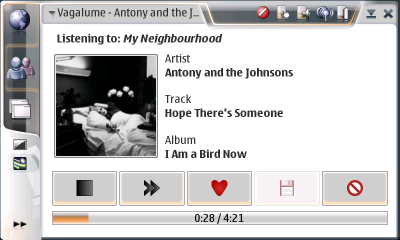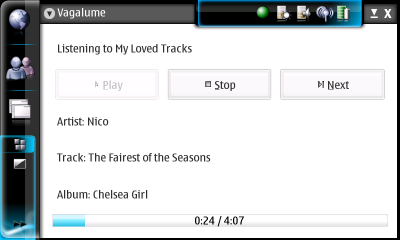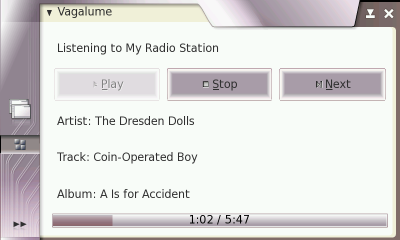It’s almost a month since I last posted something here, but it’s because these last weeks I have been really busy.
However it was definitely worth it. Last Wednesday the first beta of Modest, the new e-mail client for the Maemo platform was released.
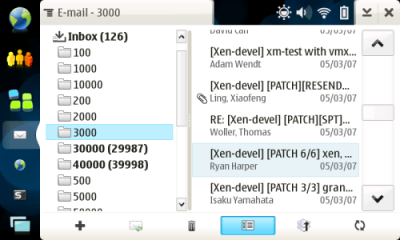 |
I’ve been working on Modest with some colleagues at Igalia for some time now and we have been doing our best to create a good e-mail client. Modest is still in beta, but I think that it’s reasonably usable now and we’re looking forward to improving it. The reviews we’ve seen so far have been positive and that encourages us to keep on working! Thank you all!
I’d also like to thank Philip, the author of Tinymail, for all his help and contributions and for being such a nice guy.
And, of course, the great Dirk-Jan from Nokia, the best possible leader and an amazing guy who had the good taste to announce Modest quoting one of the greatest records ever made. And he even uses Vagalume! 😉
Well, and what happened to Vagalume then? Of course I haven’t forgotten about it, it’s just that I haven’t had much time to work on it. However I managed to introduce some new features and bugfixes, so Vagalume 0.4 is here. As usual, details in my webpage but for the impatient here are the highlights:
- New dialogs for tagging and recommending tracks
- Ability to edit existing tags for a track, and to see the list of the most popular tags set by other people
- HTTP proxy support so you can use Vagalume at work 😉
- ConIc support: Vagalume will connect your N8x0 to the Internet if it’s offline (thanks Calvaris!)
- New Vagalume icon (thanks Felipe!)
- …and some other optimizations and minor fixes
Here’s how Vagalume looks on a PC:
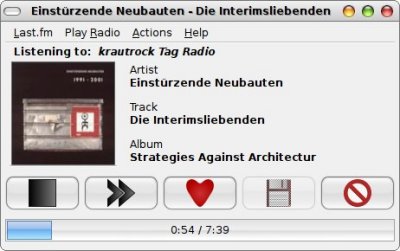 |
By the way, this time I compiled Vagalume packages for Ubuntu too. I haven’t tested them but they should work.
And that’s all! I hope you enjoy both programs!
